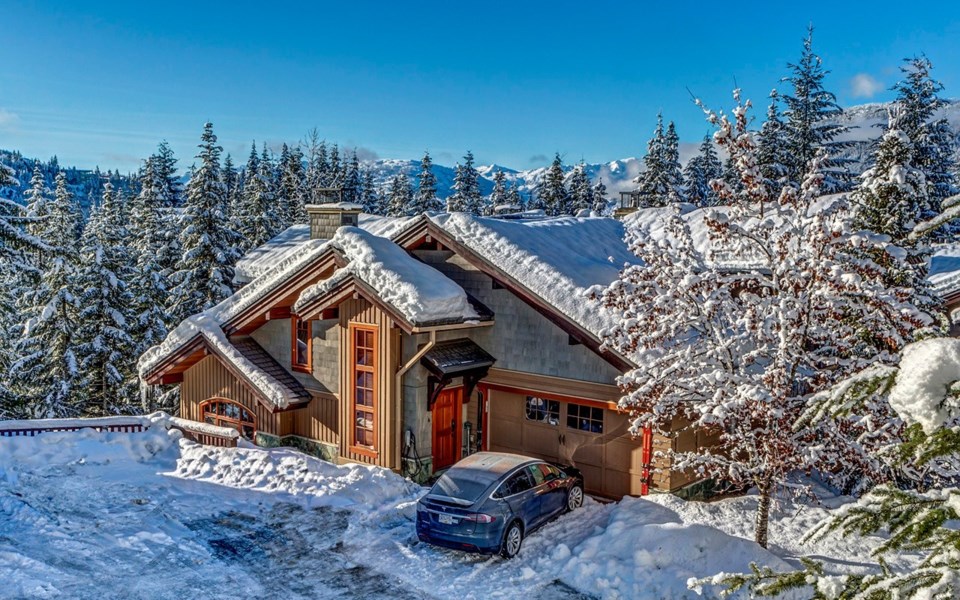Assessed property values in Whistler went up again last year, though at a significantly slower pace than has been seen since 2016.
"Definitely Whistler has been a little bit different than the rest of the Lower Mainland ... about minus five to about plus 10 (per cent) is where the majority of the properties will see changes to their assessment notice for this year," said Brian Smith, BC Assessment's deputy assessor for the Lower Mainland.
The average change for single-family homes in Whistler as of July 1, 2019 was a five-per-cent increase in assessed value—a noticeable slowdown after four straight years of double-digit increases (11 per cent in 2018; 21 per cent in 2017; 20 per cent in 2016 and 11.7 per cent in 2015).
The average assessed value for a single-family home in Whistler was $2,033,000, Smith said, while the "top 10" ranged in value from $12,655,000 (for a home on St. Anton Way) to $18,395,000 (for a home on Hillcrest Lane).
Strata properties (which include condos and townhomes in Whistler) fell in assessed value by an average of four per cent—the average assessment for a townhome or condo was $919,000.
"The typical change for a strata property in Whistler is minus 10 to plus 5, so a majority of the properties are moving within that rate," Smith said.
"That would just be based on the sales that have occurred in and around that July 1 date."
For commercial and industrial properties, the majority of assessed values are moving between minus five and plus 10 per cent, Smith said, "so it does fit with what we are seeing in the Greater Vancouver market."
While he doesn't argue with the five-per-cent increase in assessed value for single-family homes, the number may not accurately describe what happened in the market last year, said Pat Kelly, president of the Whistler Real Estate Co.
"There were some very expensive properties—a very small number, but very expensive properties—that sold in the first half of 2019, which probably pulled the numbers up," Kelly said, noting that a year ago at this time, there were just two properties for sale in Alpine.
"Now there's 18, and so we're actually seeing, in some geographical areas, prices are actually going down, and did go down over the period in question."
It's also important to note when discussing the strata assessments that condos and townhouses are considered together, Kelly added.
While the townhouse market has "probably seen an overall drop in average sales value in excess of 10 per cent," the condo market—which includes many units that can be legally rented nightly, making them more attractive investments—is probably up 10 or 15 per cent, Kelly said.
"So my advice would be ... there's different stories for different sectors of the market right now, and I would encourage everybody to go to the assessment roll and check their assessments, because different categories of the market did behave differently over the period in question," he said.
Dana Friesen Smith of Stilhavn Real Estate Services Whistler offered a similar take, noting that while her own assessment went down by two per cent, depending on which part of the market you're in, you may be seeing a change anywhere from minus five to plus five.
"I do see a neutral market that we're currently in overall," Friesen Smith said.
"So the big increases that we've seen over the last three years are slowing down significantly, but the market is very individual, so Phase 1 nightly rental properties are still holding strong and increasing in some sectors, whereas single-family homes over $2 million have really slowed down, and those properties' values and assessments have come down."
As for her outlook on the market, Friesen Smith said it's twofold.
"I see a very stable market. There is still a ton of buyers who fall in love with Whistler every day, and see its potential," she said. "But the other aspect is it will be interesting to see, especially with the Phase 1 nightly rental market, with the slow start to our season, that can potentially spawn an emotional trigger, because people aren't making the rental revenue that they were last year ... Those properties, some of them might start coming on the market, and then if we get a bit of a flood of that market, we'll see that market just slow down and potentially decrease because of that."
That said, Friesen Smith expressed optimism for the local real estate market.
"People love Whistler, so don't be concerned if your property value assessments have gone down, and/or if the market looks like it's neutralizing, because the long game is strong, " she said.
"Whistler is not going anywhere. I meet people every day who are buyers who want in that can't wait to move and live in Whistler, and I don't see that changing any time soon."
Kelly's message for owners and prospective buyers was similar.
"Check your assessment. If you're going to appeal, do it by Jan. 31, and I think you can expect to see an increase again next year in assessed values," he said. "It's a positive environment for real estate in our area going forward. I don't see any signs that would cause me to go 'oh my' ... make conservative decisions, but all the data would suggest it's going to be a positive year in 2020."
In Squamish, single-family homes stayed even, on average (at an average assessed value of about $930,000), while Pemberton also saw a five-per-cent increase (from an average assessed value of $829,000 to $873,000).
Owners have until Jan. 31 to appeal their assessment.
Head to www.bcassessment.ca for more.




